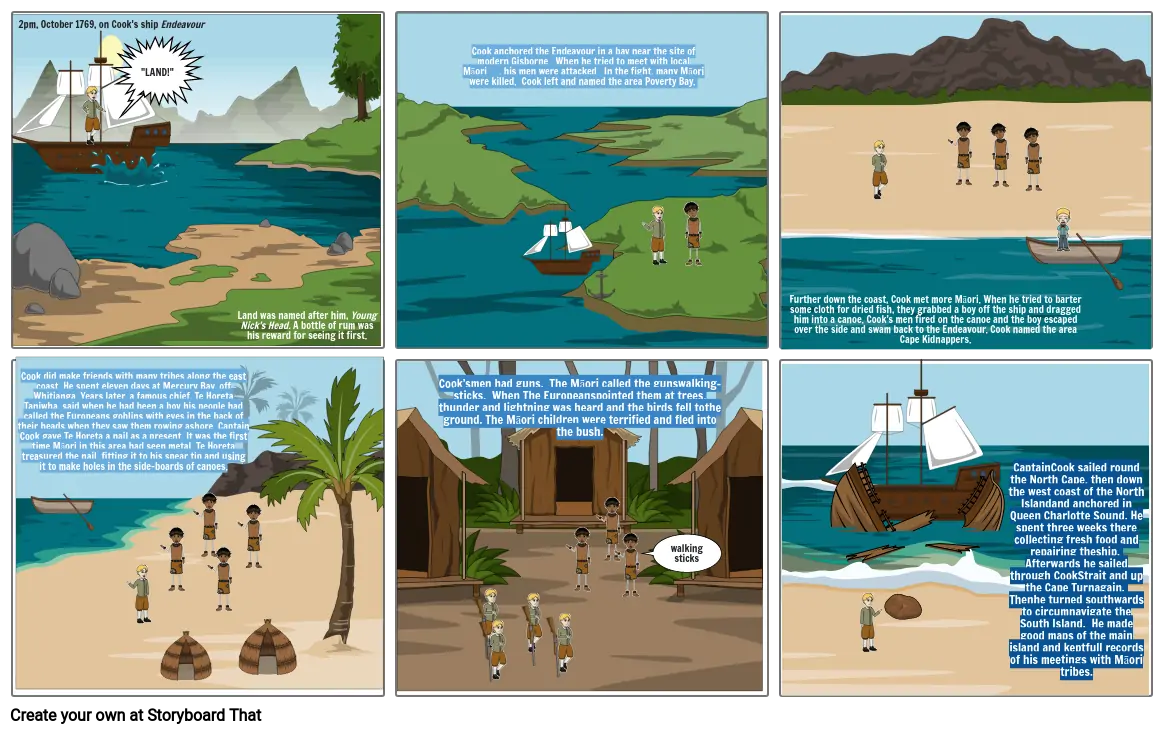10SST

Storyboard Text
- 2pm, October 1769, on Cook's ship Endeavour
- "LAND!"
- Land was named after him, Young Nick's Head. A bottle of rum was his reward for seeing it first.
- Cook anchored the Endeavour in a bay near the site of modern Gisborne. When he tried to meet with local Māori , his men were attacked. In the fight, many Māori were killed. Cook left and named the area Poverty Bay.
- Further down the coast, Cook met more Māori. When he tried to barter some cloth for dried fish, they grabbed a boy off the ship and dragged him into a canoe. Cook’s men fired on the canoe and the boy escaped over the side and swam back to the Endeavour. Cook named the area Cape Kidnappers.
- Cook did make friends with many tribes along the east coast. He spent eleven days at Mercury Bay, off Whitianga. Years later, a famous chief, Te Horeta Taniwha, said when he had been a boy his people had called the Europeans goblins with eyes in the back of their heads when they saw them rowing ashore. Captain Cook gave Te Horeta a nail as a present. It was the first time Māori in this area had seen metal. Te Horeta treasured the nail, fitting it to his spear tip and using it to make holes in the side-boards of canoes.
- Cook’smen had guns. The Māori called the gunswalking-sticks. When The Europeanspointed them at trees, thunder and lightning was heard and the birds fell tothe ground. The Māori children were terrified and fled into the bush.
- walking sticks
- CaptainCook sailed round the North Cape, then down the west coast of the North Islandand anchored in Queen Charlotte Sound. He spent three weeks there collecting fresh food and repairing theship. Afterwards he sailed through CookStrait and up the Cape Turnagain. Thenhe turned southwards to circumnavigate the South Island. He made good maps of the main island and keptfull records of his meetings with Māori tribes.
Over 30 Million Storyboards Created
No Downloads, No Credit Card, and No Login Needed to Try!
